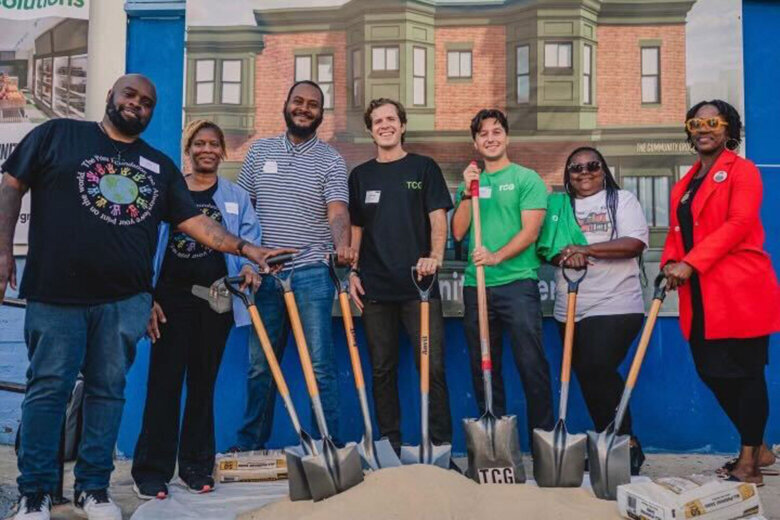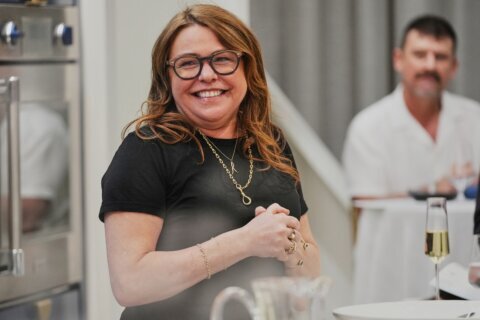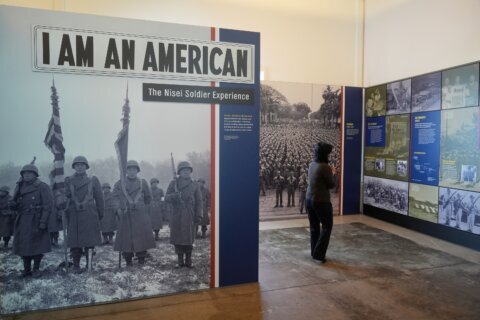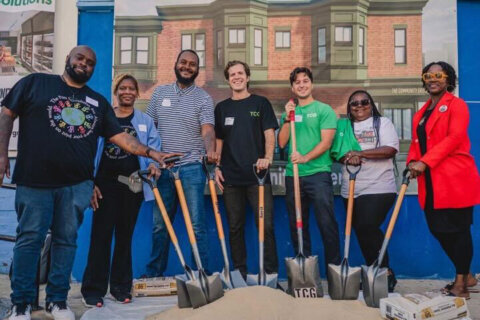
Two D.C. natives are helping to tackle food insecurity in Philadelphia with a new type of community grocery store. They hope the idea will catch on around the country, including in their hometown.
During the pandemic, Eli Moraru and Alexandre Imbot, founders of the Community Grocer, were volunteers distributing USDA food boxes to neighbors in need in the Grays Ferry neighborhood of Philadelphia. While working, they noticed that the ingredients weren’t adding up to a full meal.
“These boxes were bulk ingredients that didn’t add up to a recipe,” Moraru told WTOP’s Mike Murillo. “You know, a pound of potatoes, a pound of onions, a pound of cheese … it didn’t add up to a recipe.”
Transportation for those in the low-income neighborhoods who would take the ingredients — especially for the elderly — was also prohibitive.
“[For seniors], they couldn’t carry them home and, for youth, it required a car to even get it to their homes … and bags and babies and buses don’t mix,” Moraru said.
Due to federal regulation, those who receive EBT, or “food stamps” through the Supplemental Nutrition Assistance Program (SNAP), can’t spend the benefit on food that is hot or prepared. That means those dependent on food stamps have limited choices based on where they live.
“For our neighbors that meant the only place they could use their food stamps within walking distance was the corner store for chips and soda and hot pockets,” said Moraru. “And we kept having this conversation of our youth and our parents and our families and our seniors can have Skittles for breakfast, but they can’t have scrum scrambled eggs.”
After many conversations in their community, Moraru and Imbot found that most wished they could use their EBT or food stamps “for a hot healthy delicious meal in my neighborhood within walking distance.”
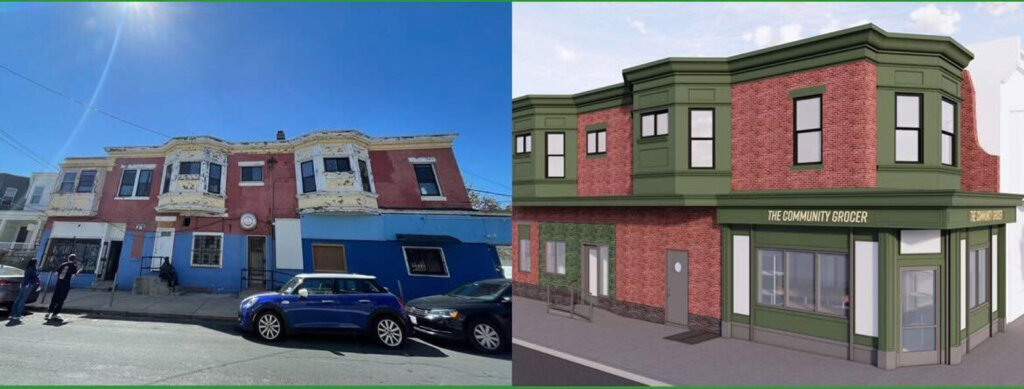
It was through these observations that Moraru and Imbot conceived a way to get around the regulation.
“We eventually found that if we created a nonprofit retailer … that sells an all-day menu of fresh local farm ingredients that are prepared up until that point of heating into meal kits,” said Moraru. “Smoothies, breakfast sandwiches, family platters and dinner planners … the meal kit is as close as you can get to a prepared meal without heating.”
With a loophole from the regulations and model to start from, Moraru and Imbot, with the help of community leaders, founded the Community Grocer.
After receiving both community and government support, the first brick and mortar location for the Community Grocer will be opening it’s West Philadelphia location in 2024.
Another goal for the team is to create a framework for their model so it can be duplicated in low-income food deserts throughout the U.S. That includes Washington, D.C.
“For me as a D.C. native, my dream is to bring this model to D.C., where I grew up, where I’ve seen the effects of food apartheid with friends,” said Moraru. “As you drive across the city, from Northwest to Southeast, you see the effects and health disparities of food deserts and food apartheid.”
Bringing their model and efforts to D.C. would be a bit of a homecoming for Moraru and Imbot. Moraru attended Wilson High School (now Jackson Reed), while Imbot graduated from Washington International School. They even attended the same synagogue growing up.
Oddly, despite living so close to one another, the two founders didn’t meet until they began their volunteer work in Philadelphia.
WTOP’s Joshua Barlow contributed to this story.

